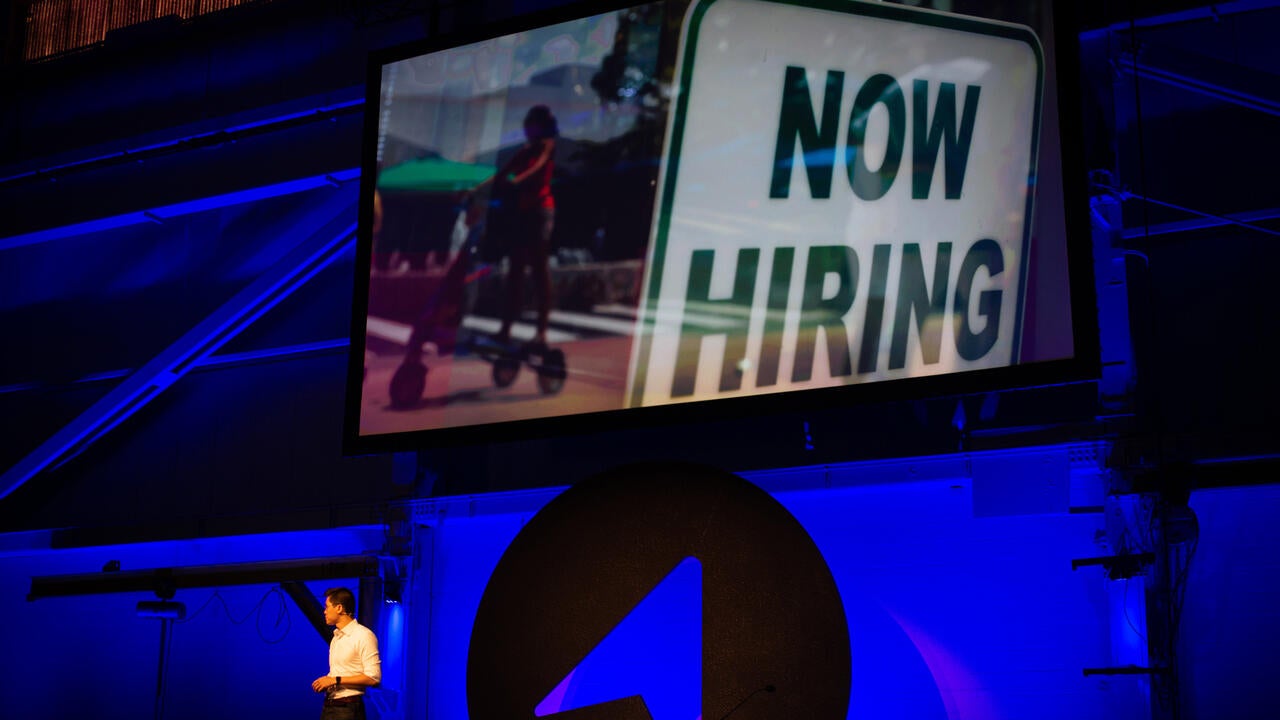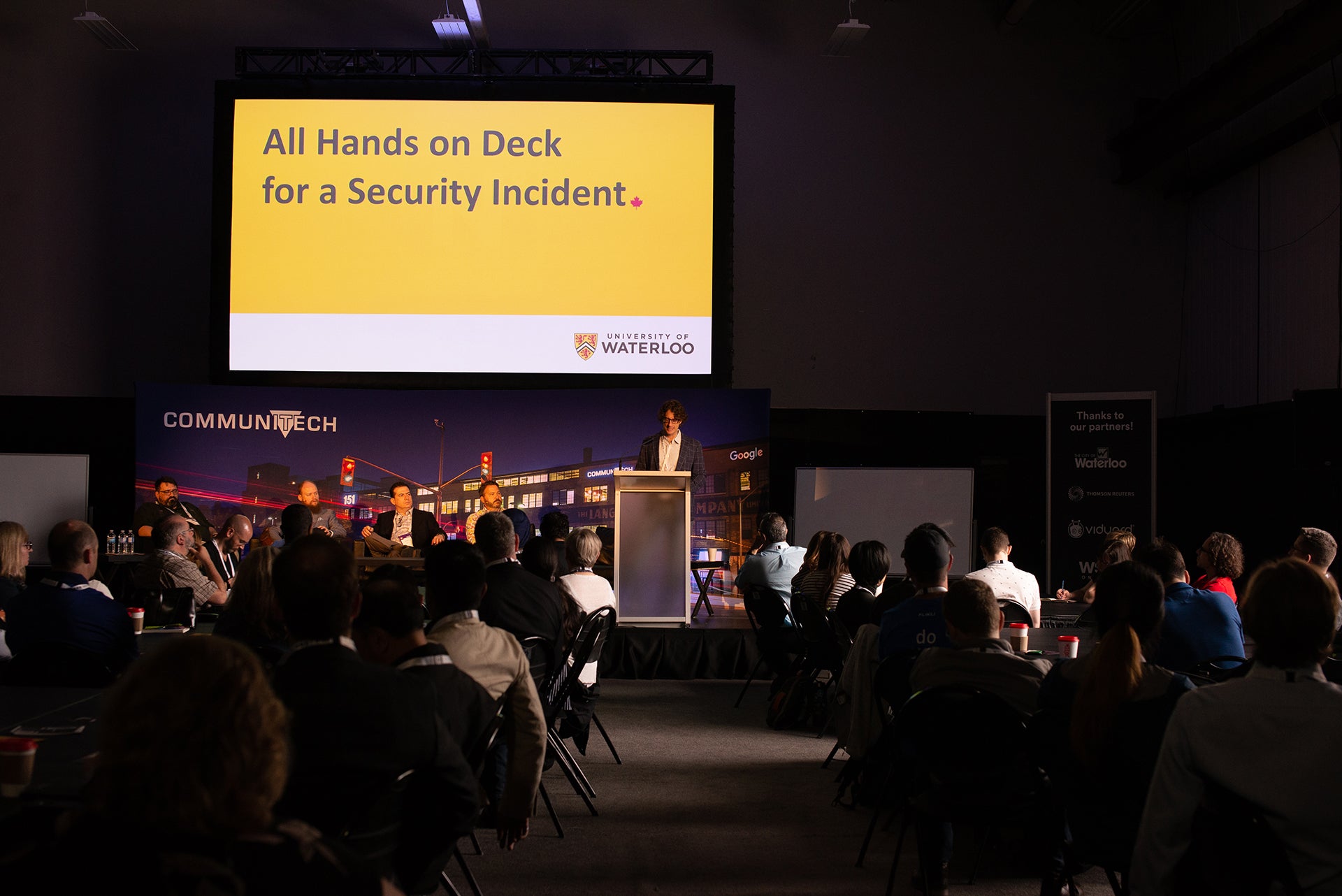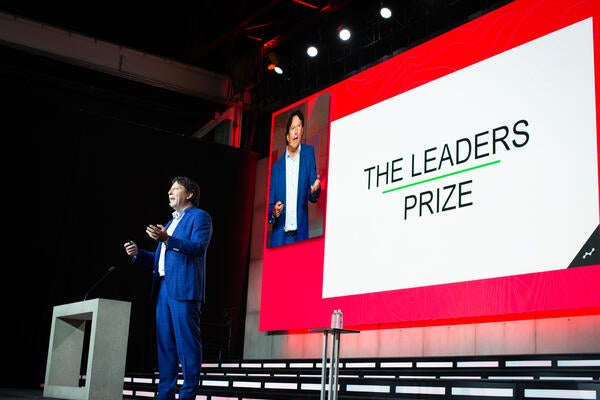
What does the future of work look like?
The AI revolution and its impact on jobs is top of mind at True North 2019

The AI revolution and its impact on jobs is top of mind at True North 2019
By Stephanie Longeway University RelationsIf you are reading this, you are on the internet, and this is thanks to Sir Tim Berners-Lee, True North 2019’s keynote speaker. He invented the World Wide Web, which spawned the internet revolution, fundamentally changing the way we communicate and do business.
With the growing adoption and breakthroughs in artificial intelligence and digital technologies, AI is poised to be the most disruptive revolution since the invention of the internet.
What does this mean for humans in the workforce? University of Waterloo speakers at True North 2019 explore how AI is already transforming industry and what this means for the future of work.
“Today, we are facing a massive tidal wave because of our changing economy. We are heading into the fourth industrial revolution…the digital revolution,” says William Zhou (BMath ’15), CEO of Chalk and Waterloo alumnus.
Zhou led a talk on the future of work. He pointed to the trend of more and more jobs being automated, but notes that this has led to new jobs and professions that could never have been imagined in past generations. Educating the next generation will play a key role in developing new skills for the changing workforce, but we must also focus on re-skilling our current talent.
Hear Zhou talk about the need for learning in the workplace.
Automation is predicted to displace current jobs in our economy. Meghan Wahab (BKI ’16) and Liu Yang (BASc ’02), product leaders at Bonfire, believe that companies have a social responsibility to re-skill and train their workforce when automation happens. It is not just a social imperative, it makes business sense too. They explain that when you elevate your workforce through training, it will increase productivity.
“Automation should not displace workers, but allow more work to be done,” explains Wahab.
Watch Wahab and Yang discuss the impact of automation.
Automation and digital technology have increased the speed and capacity of industry, but it has also exposed us to new risks like digital fraud and hacking. If there is a cybersecurity breach, who will respond?
“Everybody is at risk and every day that risk increases,” says Lewis Humphreys, managing director at Waterloo’s Cybersecurity and Privacy Institute (CPI).
Humphrey’s moderated a True North workshop hosted by Waterloo on privacy and security program planning for organizations.

Digital connectivity requires companies to create a plan and be prepared to respond to security concerns and attacks. This means addressing talent gaps in creative ways, such as working with academic experts and developing the skills of employees. But it is not just the tech experts who will be integral in addressing cybersecurity.
“Cybersecurity by its nature is a collaborative endeavour,” says Humphreys. He explains that it includes frontline tech support, but also those responsible for managing risk at the company such as the executive leadership team, marketing and communications professionals and human recourses. Everyone at an organization needs to be trained in privacy and security.
At CPI, researchers from all of Waterloo’s faculties are represented in solving these complex cybersecurity problems.
“We need diversity of thought and views to tackle security issues,” explains Michele Mosca, co-founder of the Institute for Quantum Computing and Waterloo professor in the Faculty of Mathematics. Mosca, one of the workshop panelists, noted that people from all discilines and professions need to come together on this issue. This diversity of thought is refelcted in CPI's research. It is not just data scientists and engineers doing work at CPI, but also academics concerned with policy and human-computer interaction.
While we are training our next generation of talent here at home, we can also leverage the global pool of highly skilled workers that exist today.
Kris Braun (BMath ’01), vice-president of Bonfire, spoke about his company’s experience and immediate need for highly skilled talent. As a Waterloo alumnus, Braun sees the talent that already exists within Waterloo region, but there is still a gap in the number of talent to open tech positions. Many people working in the global tech sector have been displaced due to social and economic circumstances, and his company has found success in seeking out these skilled refugees to fill roles in their company.
Watch Braun explain how Waterloo region should welcome tech refugees.
Like the past industrial revolutions that transformed modern society, this generation will need to adapt and re-skill in the face of disruption. We need creative solutions to elevate our workforce, starting with education and then continuing the promote life-long learning.
The next industrial revolution we face will be advancements in digital technology and AI, but True North speakers seem to agree that how we respond in the workforce will also require a revolution in re-learning.

Read more
University of Waterloo partners with True North 2019 to explore the social impact of technology

Read more
Leaders tell Waterloo Innovation Summit to fund basic research to commercialize unexpected outcomes

Read more
Lesson 2.5: how jellyfish can change your perspective on R&D
The University of Waterloo acknowledges that much of our work takes place on the traditional territory of the Neutral, Anishinaabeg, and Haudenosaunee peoples. Our main campus is situated on the Haldimand Tract, the land granted to the Six Nations that includes six miles on each side of the Grand River. Our active work toward reconciliation takes place across our campuses through research, learning, teaching, and community building, and is co-ordinated within the Office of Indigenous Relations.